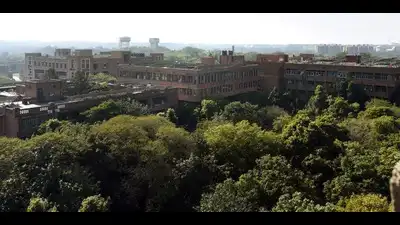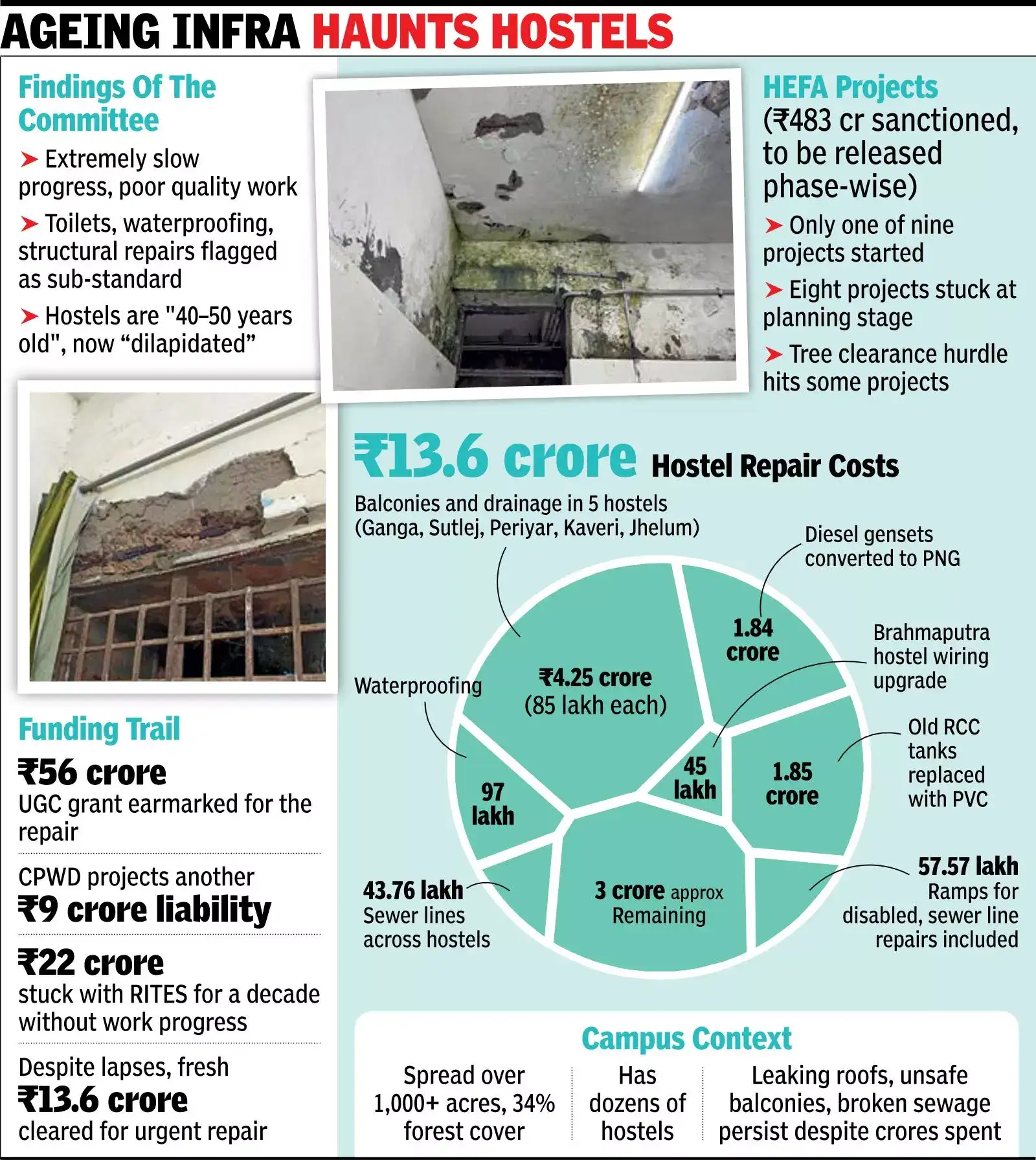ARTICLE AD BOX

NEW DELHI: Crores have been spent on repairing Jawaharlal Nehru University's ageing hostels, but the results are far from satisfactory. In a meeting held last year, the minutes of which were approved this Aug, JNU's buildings and works committee pulled up Central Public Works Department, the central govt agency entrusted with campus development and repair works, for "extreme slow progress" and "poor quality" of the work, even as it cleared another Rs 13.6 crore for urgent fixes."The committee expressed great concern over extreme slow progress of works and the poor quality," the minutes noted, adding that the CPWD director general be requested to inspect the sites and "seriously address concerns of the university". Vice-chancellor Santishree Dhulipudi Pandit also expressed "serious note over slow progress" and directed CPWD to speed up.

The committee reviewed hostel-wise repairs taken up under a Rs 56-crore grant from University Grants Commission. While many works were nearing completion, it observed that "the quality of work, particularly renovation of toilets in hostels, waterproofing and structural repairs, is not satisfactory".
No immediate response was available from CPWD.However, the committee also approved fresh spending of Rs 13.6 crore for urgent hostel works, including repairing balcony floors and drainage systems at Ganga, Sutlej, Periyar, Kaveri and Jhelum - around Rs 85 lakh each, waterproofing across hostels for Rs 97 lakh, replacing old leaking RCC water tanks with PVC tanks in more than 10 hostels for Rs 1.85 crore, rewiring and electrical upgrades at Brahmaputra for Rs 45 lakh and converting diesel generators to cleaner PNG fuel for Rs 1.84 crore.
The construction of ramps for physically disabled students and fixing sewer lines are also part of the package.The committee observed that most JNU hostels, built 40-50 years ago, were in a "dilapidated state" and required extensive repairs. While approving the fresh expenditure, the chairperson of the monitoring and evaluation committee, Sangmesh, emphasised that CPWD must "focus on quality and speed of work".Around Rs 31 crore has been released by UGC, with CPWD projecting another Rs 9-crore liability. At the same time, JNU has recovered Rs 22 crore from RITES Ltd, which was earlier entrusted with development works but had blocked the money for nearly a decade without executing any project, the committee stated.The committee also flagged the fate of bigger development projects under Higher Education Financing Agency.
Of the Rs 483 crore sanctioned, only one project, the School of Engineering and Atal Bihari Vajpayee School of Management building, has started after the foundation stone was laid in Aug 2024. The other eight are stuck at the planning stage.One major hurdle has been environmental clearance. With JNU's over 1,000-acre campus located on the ridge and nearly 34% covered by forest, the committee expressed apprehension that permission would not be granted to build on the earlier earmarked sites due to dense tree cover and a high court ban on felling.
JNU then shifted the location of four proposed hostels to an area with only 45 trees and submitted a revised master plan to Delhi Development Authority.JNU's finance officer, Suman Kumar, cautioned that despite the university regularly paying its HEFA loan contributions, "the ministry of education is expressing serious concern over slow utilisation of HEFA funds without getting proportionate benefit". The committee decided that future funds should be released after visible progress.The VC directed TOI's request for a comment to registrar Ravikesh, who did not respond.



.png)
.png)
.png)
















 19 hours ago
4
19 hours ago
4







 English (US) ·
English (US) ·